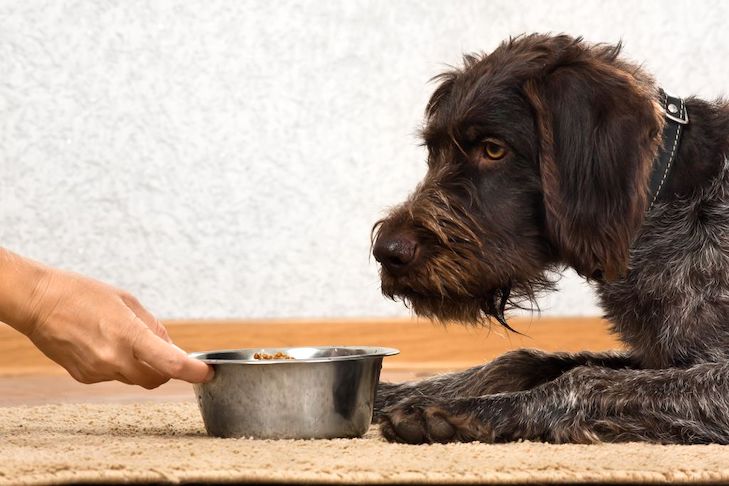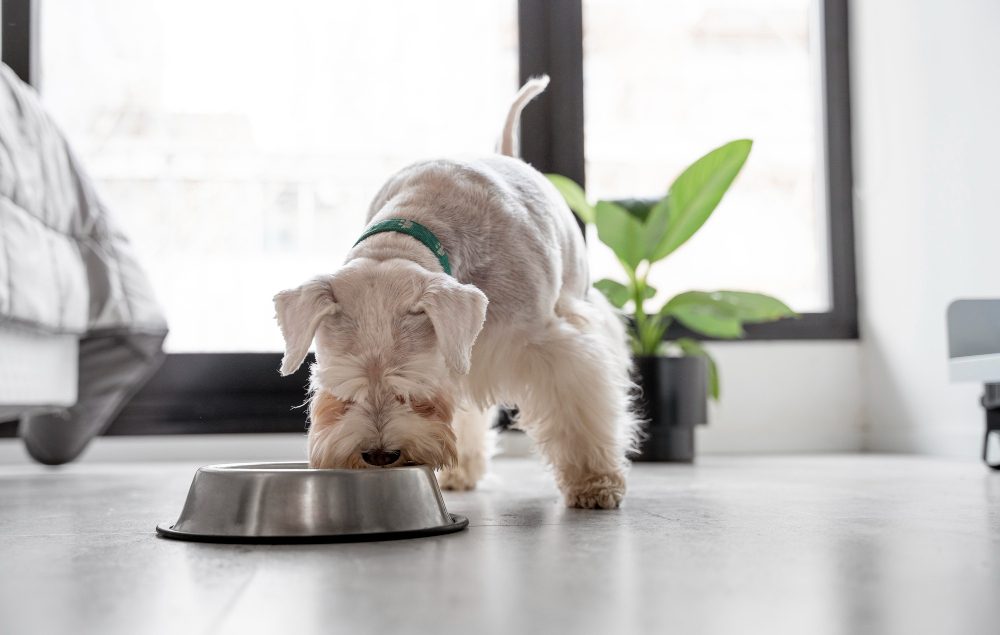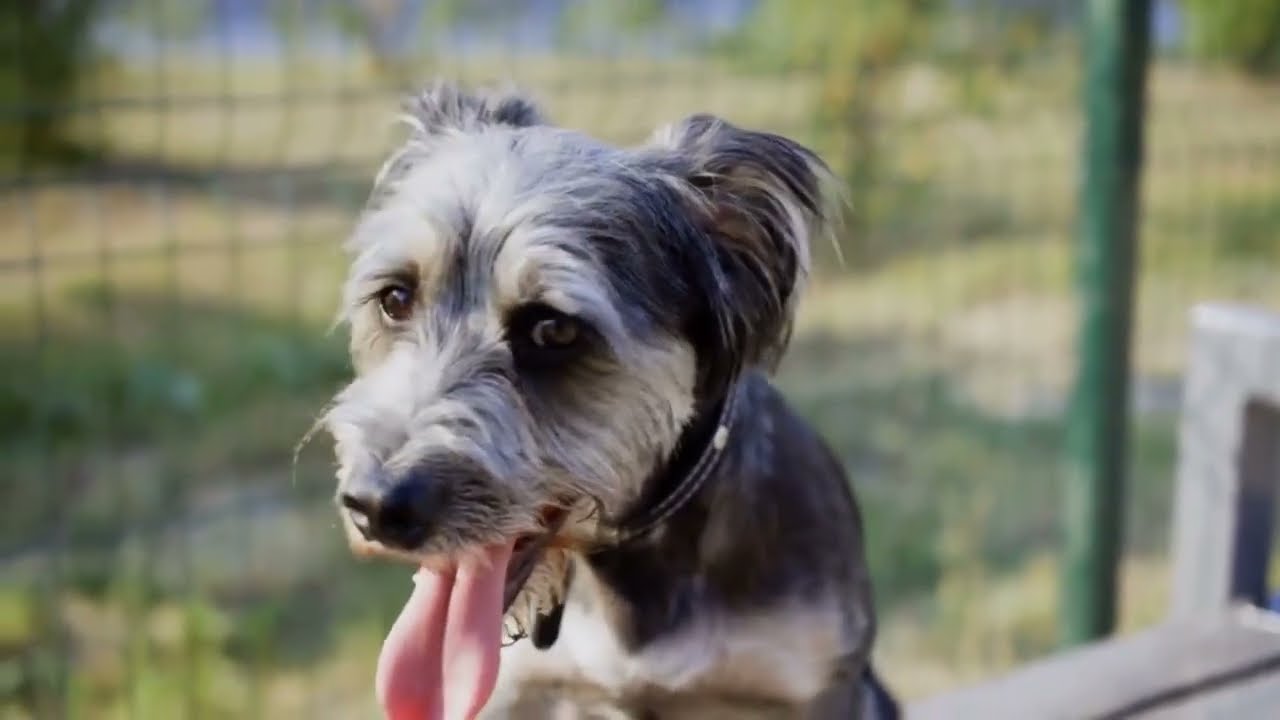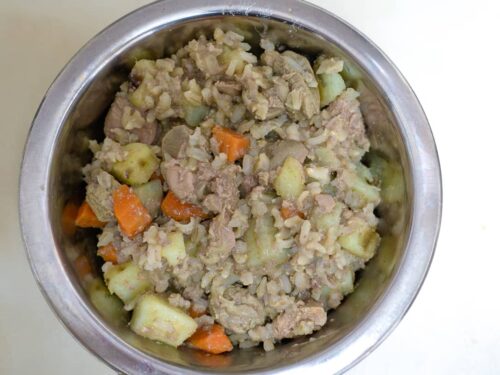As dog owners, we all want the best for our furry companions. And when it comes to their nutrition, there is no exception. While commercial dog food may seem like a convenient option, there’s something special about preparing homemade meals for your miniature schnauzer. Not only does it allow you to have full control over the ingredients and tailor the diet to your dog’s specific needs, but it also strengthens the bond between you and your canine companion. In this comprehensive guide, we will explore the benefits of homemade meals for miniature schnauzers and provide tips and recipes for creating delicious and nutritious meals.
Nutritional Needs of Miniature Schnauzers

Just like humans, dogs have different nutritional needs depending on their age, activity level, and health conditions. It’s important to understand these needs before embarking on your journey of making homemade meals for your miniature schnauzer. Here are some key nutrients that should be included in their diet:
Protein
Protein is essential for building and repairing muscles, tissues, and bones. For miniature schnauzers, protein should make up around 25-30% of their diet. Good sources of protein for dogs include lean meats such as chicken, turkey, beef, and fish. These should be cooked thoroughly and any bones should be removed before serving.
Fats
Fats provide energy and help maintain healthy skin and coat. They also help with nutrient absorption and support the immune system. However, it’s important to choose healthy fats and avoid those that can lead to obesity and other health issues. Good sources of healthy fats for miniature schnauzers include fish oil, flaxseed oil, and coconut oil.
Carbohydrates
Carbohydrates provide energy and fiber for digestion. However, not all carbohydrates are created equal. Avoid grains such as corn and wheat, which are common allergens for dogs. Instead, opt for healthy sources of carbohydrates such as sweet potatoes, brown rice, and quinoa.
Vitamins and Minerals
Vitamins and minerals are essential for a dog’s overall health and well-being. They play a vital role in maintaining a strong immune system, healthy bones and teeth, and good digestion. Some important vitamins to include in your miniature schnauzer’s diet are vitamin A, vitamin D, and vitamin E. Good sources of these vitamins include carrots, eggs, and leafy greens.
Choosing the Right Ingredients: Quality Counts

When it comes to homemade meals for your miniature schnauzer, quality should be a top priority. It’s important to choose fresh, whole ingredients that are free from preservatives, artificial flavors, and other additives. Here are some key things to keep in mind when selecting ingredients for your homemade meals:
Meat
As mentioned earlier, protein is crucial for your dog’s diet, and meat is a primary source of this nutrient. When choosing meat for your miniature schnauzer, opt for lean cuts that are low in fat. Avoid processed meats and those with added spices or seasonings. It’s also crucial to cook the meat thoroughly to avoid any potential bacteria.
Vegetables
Vegetables are an excellent source of vitamins, minerals, and fiber for your miniature schnauzer. However, not all vegetables are safe for dogs to consume. Some toxic vegetables for dogs include onions, garlic, and mushrooms. Good options for vegetables to include in your homemade meals are carrots, green beans, peas, and spinach.
Fruits
Fruits can provide a variety of nutrients for your miniature schnauzer, but they should only be given in moderation. Some fruits, such as grapes and raisins, can be toxic to dogs. Choose fruits that are low in sugar and high in nutrients, such as blueberries, strawberries, and apples.
Supplements
While homemade meals can provide a well-rounded diet for your dog, it’s always a good idea to consult with your veterinarian and consider adding supplements to their meals. Some key supplements that may benefit miniature schnauzers include fish oil for healthy skin and coat, probiotics for gut health, and joint supplements for older dogs.
Easy and Delicious Homemade Recipes for Miniature Schnauzers

Now that you have an understanding of the key nutrients and ingredients for your miniature schnauzer’s diet, it’s time to put it all together and create some delicious recipes. Here are three simple and tasty recipes to get you started:
Chicken and Rice Meal
Ingredients:
- 1 cup cooked chicken, shredded
- 1 cup brown rice, cooked
- ½ cup carrots, steamed and chopped
- ½ cup green beans, steamed and chopped
- 1 tablespoon coconut oil
- 1 teaspoon dried parsley
Instructions:
- Cook the chicken and rice separately according to package instructions.
- In a large mixing bowl, combine the cooked chicken, rice, carrots, and green beans.
- Drizzle the coconut oil over the mixture and stir until everything is well coated.
- Sprinkle dried parsley on top and mix again.
- Allow the meal to cool before serving to your miniature schnauzer.
Salmon and Sweet Potato Meal
Ingredients:
- 1 cup canned salmon, drained
- 1 sweet potato, cooked and mashed
- ½ cup peas, steamed
- ½ cup carrots, steamed and chopped
- 1 tablespoon flaxseed oil
- 1 teaspoon dried oregano
Instructions:
- Preheat your oven to 350 degrees Fahrenheit.
- In a mixing bowl, combine the canned salmon, mashed sweet potato, peas, and carrots.
- Drizzle the flaxseed oil over the mixture and stir until everything is well combined.
- Line a baking sheet with parchment paper and spread the mixture evenly on the sheet.
- Sprinkle dried oregano on top of the mixture.
- Bake for 20-25 minutes or until the edges are slightly crispy.
- Allow the meal to cool before serving to your miniature schnauzer.
Turkey and Quinoa Meal
Ingredients:
- 1 cup ground turkey, cooked
- 1 cup cooked quinoa
- ½ cup broccoli, steamed and chopped
- ½ cup blueberries
- 1 tablespoon fish oil
- 1 teaspoon dried thyme
Instructions:
- Cook the ground turkey and quinoa separately according to package instructions.
- In a large mixing bowl, combine the cooked turkey, quinoa, broccoli, and blueberries.
- Drizzle fish oil over the mixture and stir until everything is well coated.
- Sprinkle dried thyme on top and mix again.
- Allow the meal to cool before serving to your miniature schnauzer.
Remember to always consult with your veterinarian before making any changes to your dog’s diet and to ensure these recipes are suitable for your dog’s specific needs.
Making the Transition to Homemade Food: A Smooth Change

If your miniature schnauzer has been eating commercial dog food all their life, transitioning to homemade meals may take some time and effort. It’s important to make this change gradually to avoid any digestive issues. Here are some tips for a smooth transition:
- Start by replacing a small portion of your dog’s kibble with homemade food. Gradually increase the amount of homemade food and decrease the kibble over a period of two weeks.
- Monitor your dog’s stool during this transition period. If you notice any diarrhea or constipation, adjust the ratio of kibble to homemade food accordingly.
- Introduce one new ingredient at a time to avoid any potential allergies or sensitivities.
- Be patient and consistent. Your dog may need some time to adjust to the new taste and texture of homemade meals.
Tips for Success and Maintaining a Healthy Diet

Now that you have all the necessary information and recipes, here are some additional tips to ensure your miniature schnauzer’s homemade diet is a success:
- Always consult with your veterinarian before making any changes to your dog’s diet.
- Use fresh, whole ingredients and avoid processed foods.
- Keep track of your dog’s weight and adjust their portions accordingly.
- Rotate protein sources to provide a variety of nutrients.
- Don’t forget to include supplements if recommended by your veterinarian.
- Store leftover meals in an airtight container in the refrigerator for up to three days or freeze for longer storage.
Conclusion
Homemade meals for your miniature schnauzer can provide a level of nutrition and care that’s often unmatched by commercial dog food. With careful consideration of your dog’s nutritional needs and quality ingredients, you can create delicious and healthy meals for your beloved pet. Remember to always consult with your veterinarian and monitor your dog’s overall health when making any changes to their diet. And most importantly, enjoy this special bonding experience with your furry companion as you embark on this delicious journey together!
